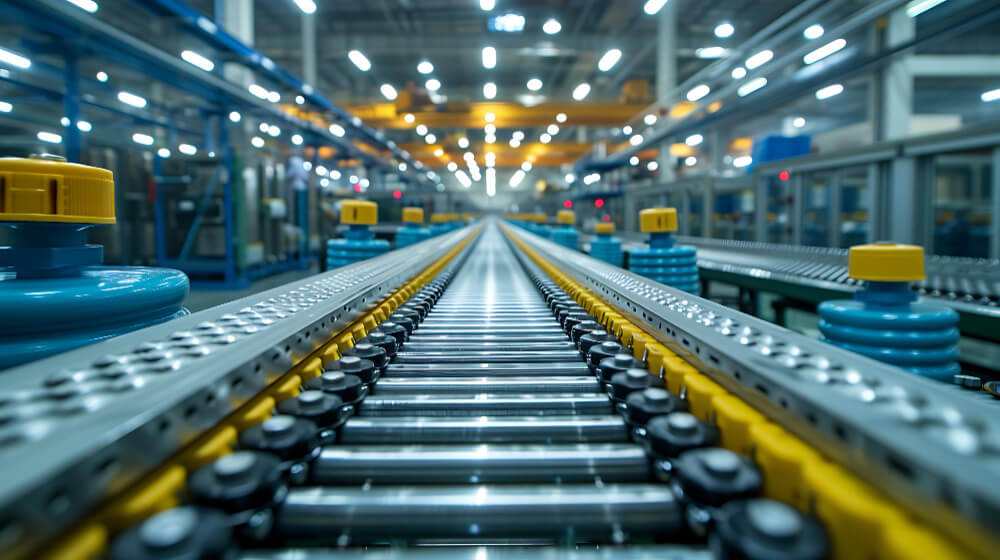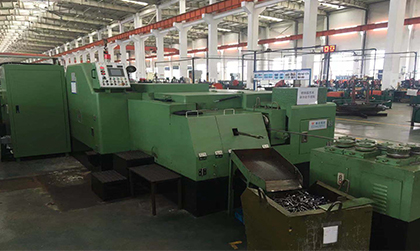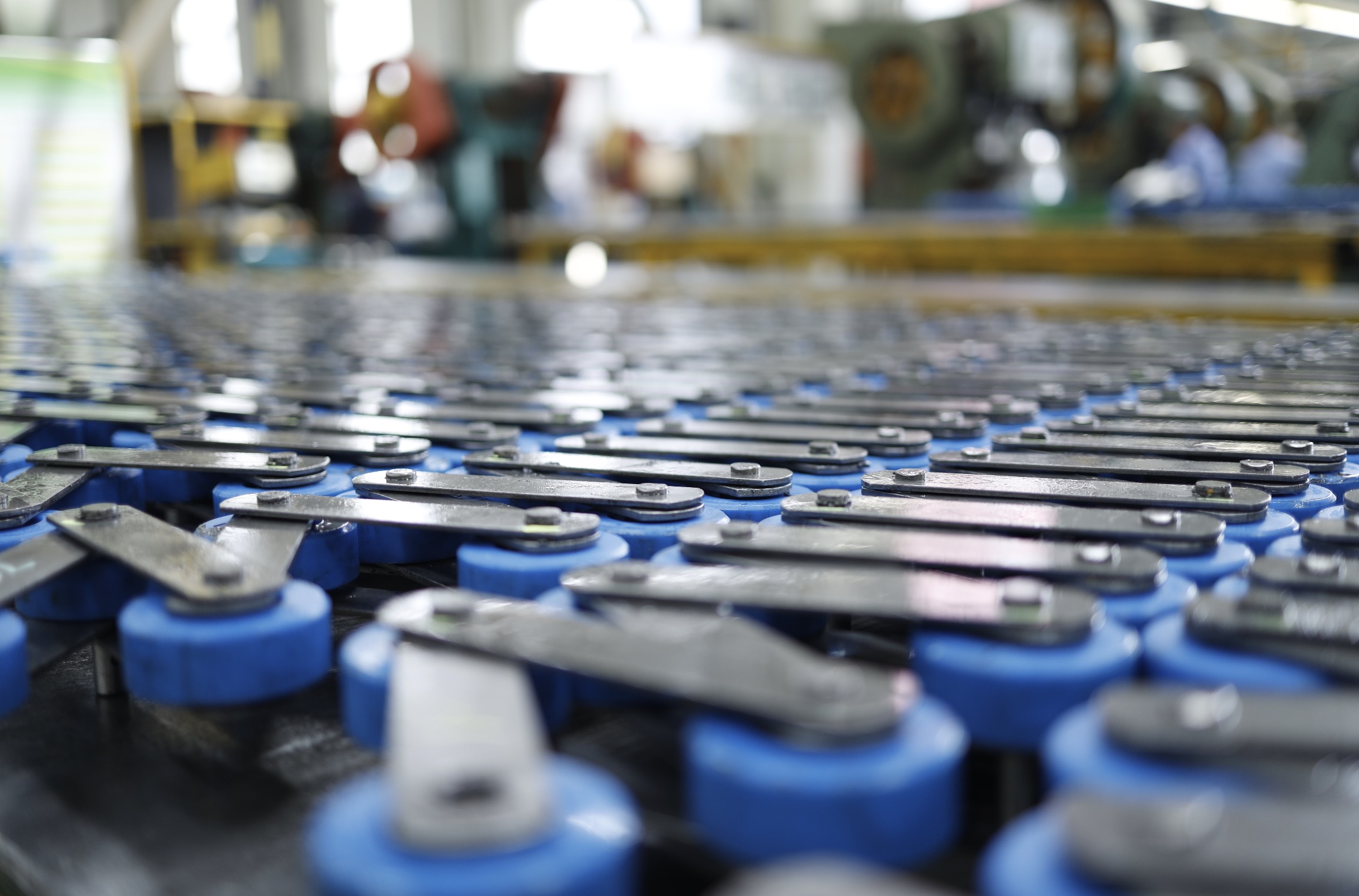Conveyor chains facilitate the movement of materials or products along a production line. They are designed to withstand heavy loads, operate smoothly, and provide reliable transportation.
There are several types of conveyor chains–what are they? The types of conveyor chains are roller, pallet, slat, modular, magnetic, and stainless steel conveyor chains.
The Types of Conveyor Chains
Let’s delve into the essential components of each:
1.Roller Conveyor Chain
One of the most common conveyor chain types is the roller conveyor chain. It consists of interconnected rollers that allow smooth and efficient movement of goods.
Roller chains are widely used in industries such as manufacturing, distribution, and warehousing. They are known for their durability, high load-bearing capacity, and ability to handle both light and heavy-duty applications.
2.Pallet Conveyor Chain
Pallet conveyor chains are specifically designed to transport pallets or skids. They feature sturdy attachments or hooks that securely hold the pallets during transportation.
Pallet conveyor chains are extensively used in industries like logistics, automotive, and food processing, where the movement of palletized goods is a fundamental requirement.
3.Slat Conveyor Chain
Slat conveyor chains utilize flat metal or plastic slats that interlock to form a continuous conveying surface. These chains are suitable for transporting heavy or irregularly shaped items, such as boxes, crates, or large components. Slat conveyor chains are commonly found in industries such as automotive assembly, bottling plants, and packaging.
4.Modular Conveyor Chain
Modular conveyor chains consist of individual interlocking modules or links that can be easily replaced or modified. This type of chain offers flexibility in terms of length, width, and configuration, making it ideal for applications that require frequent layout changes or customization. They are widely used in industries such as food and beverage, pharmaceuticals, and cosmetics.
5.Magnetic Conveyor Chain
Magnetic conveyor chains utilize magnets embedded within the chain links to attract and transport ferrous materials. These chains are especially suitable for industries dealing with metal scraps, filings, or parts. Magnetic conveyor chains offer efficient and reliable material handling solutions while also providing magnetic separation capabilities.
6.Stainless Steel Conveyor Chain
Stainless steel conveyor chains are highly resistant to corrosion, making them ideal for applications where cleanliness, hygiene, or exposure to moisture is a concern. Industries such as food processing, pharmaceuticals, and chemical manufacturing rely on stainless steel conveyor chains to ensure product integrity and compliance with strict quality standards. These chains are available in various configurations, including flat top, tabletop, and multiflex designs, to suit specific application requirements.
By choosing the right conveyor chain type, businesses can enhance their productivity, streamline operations, and ensure the smooth flow of goods throughout their production lines.
Contact Universal Chain today! Our knowledgeable team can help you identify the perfect conveyor chain for your specific application.



